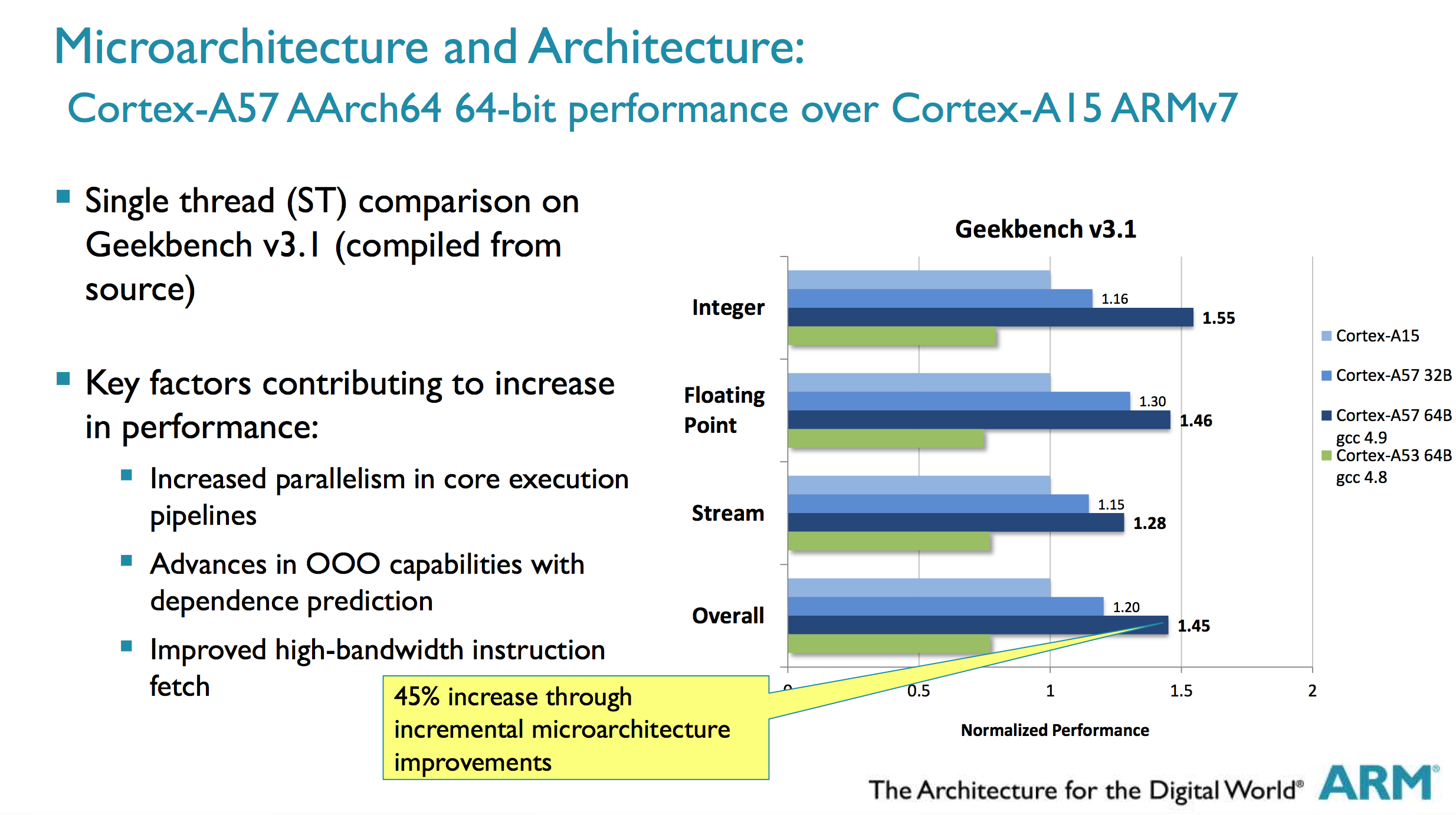The answer is unfortunately "no". Visual Studio doesn't (yet?) include compilers that target ARMv8.
On the other hand, we've been through this in the PC space before, and at no point did an updated ISA alone ever result in general performance gains >= 20%. While such gains (and more) were measurable under very specific circumstances (video encoding with QuickSync is one example), they were never general gains. For the average word/mail/office user, which requires little more than bread & butter integer performance, those ISA additions came and went largely unnoticed. That's how most of this will play out for smartphones too. That's why I'm highly sceptical that >=20% is a realistic percentage, at least not when measured under circumstances that mimic real life smartphone usage (not synthetic benchmarks).
I've searched, but so far I haven't found anyone that benchmarked the ARMv7 and ARMv8 variants of a single app on the A57. Comparisons are always drawn to older A53 or A15 CPUs which is completely useless for this purpose. Can you help out?
Don't get me wrong. I'm not excusing MS here. In contrast to the whole 64bit debate which is a complete joke, supporting ARMv8 is important and IMHO should already be part of Visual Studio. It is a big deal, I'm just sceptical it's the kind of deal-breaker big deal that a general performance improvement of >=20% would represent.
Sources (other than Qualcomm marketing material) very much appreciated...
@mortici
I disagree with your take on ARM. Just look at how MS is evolving Visual Studio into a cross platform development environment for Android and iOS which also has direct support for cross platform development tools like Unity and Xamarin. Even MS' own UWP bridges (Astoria / Islandwood) depend on the availability of ARM compilers. As long as MS intends to play in the smartphone space, they can't afford to ignore ARM compiler technology. It's not going away or being phased out.
I agree with you, my take on the bridges is the fact that they are absolutely needed if you wish to bridge the gaps between architecture and software. There has to be a means for the apps to be developed for legacy and future devices from a single point. Hence the bridges were created to allow cross platform universal development. Point being that if you are developing an ARM variant, especially in Visual Studio, you can simply do an x86 variant at the same time. ARM was/is necessary due to power and form factor restrictions, with new SoC x86 chips on the way that compete equally if not better in this realm the need might be reduced if not eliminated.
Only time will tell, but this whole thing hangs on the developer adoption. There is incentive now, because those who only developed Win32 apps, can now cross into the mobile space and vice versa, with the tools the MS I providing. Hence why I speculate that MS is looking into the future of better than ARM, x86 SoC chips and officially being able to say Windows on any size device. Addtionally this helps devs too, because you are developing for one architecture type, not ARMv7,ARMv8,64/32, SPARC, etc. just x86/amd64 like its been done in the past.
The question is then whether x86 is the best architecture for all computing...
Again this is all speculation and opinion, but the prospect of a phone sized x86 device with the power of say a Core i5 Skylake chip (core M maybe?) that can be docked and scales up to a full desktop/tablet OS (depending on peripherials) would be short of amazing. My PC travels with me, in my pocket.
The goal here is to bring the legacy stuff along with this is the hard part. You need the devs that only cerated apps for ARM to convert to universal apps and now target more than just a cellphone but ALL types of devices, granted should their app actually have value on said devices, but either way you could also set them up to only run on mobile screens and no scaling for desktop or tablet mode.
Basically re-code, how you code




